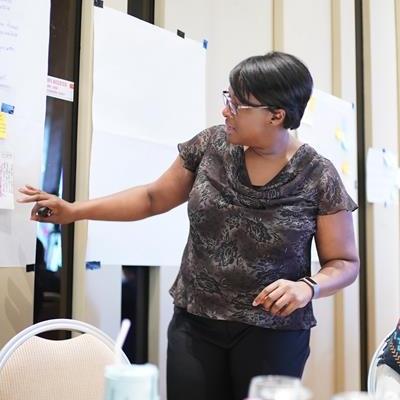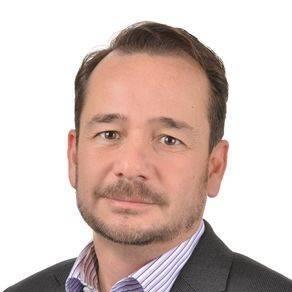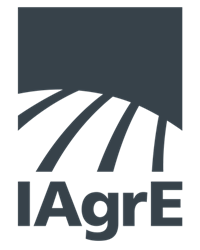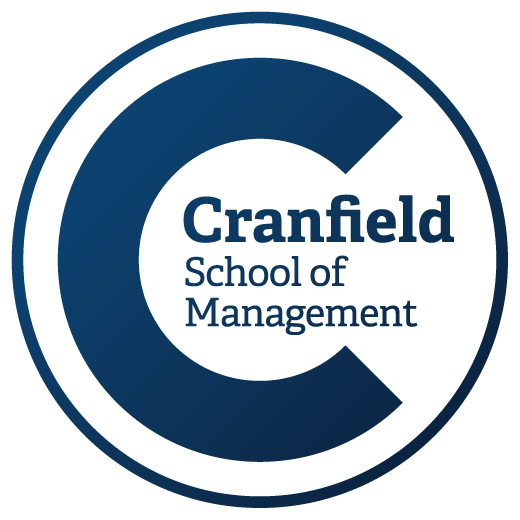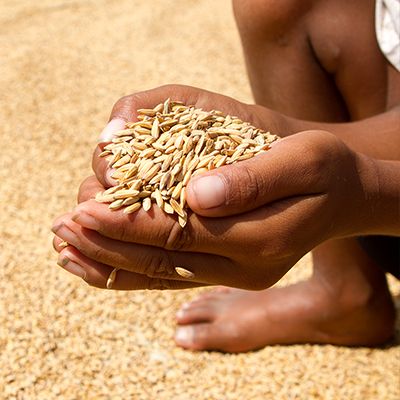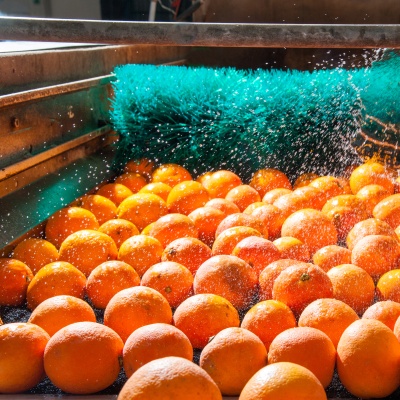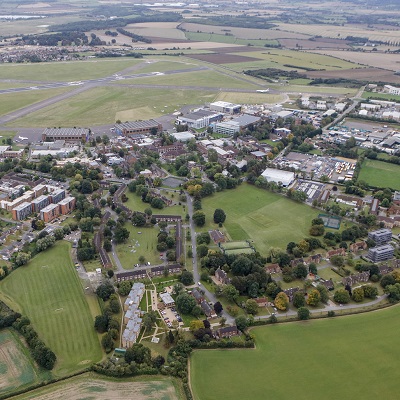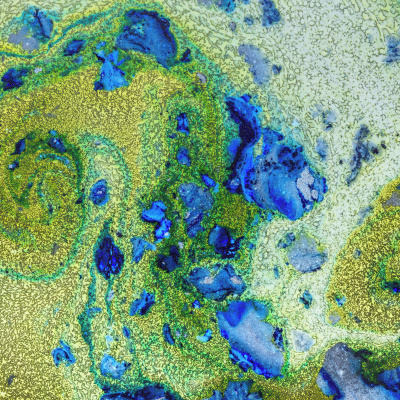Contribute to developing a more sustainable world
Food security and the sustainability of our food supply chains are major global challenges and are clearly highlighted in the United Nations Sustainable Development Goals (SDGs). Climate change, political and social changes around the world and new diet trends are some of the changing forces we are currently experiencing that put more pressure on our food system. How can we transform our food system to make it more resilient and sustainable while at the same time ensuring the supply of safe and nutritious food for everyone? The Future Food Sustainability MSc is the first of its kind in the UK to provide you with a balanced mix of technology, science, strategic foresight and management skills, enabling you to develop a successful career in the food sector and make a real difference in the world. Teaching is shared with our internationally-recognised School of Management and industry experts. Developed through intensive collaboration and consultation with industry, NGOs and government agencies, our graduates are highly valued, both nationally and internationally, in the area of sustainable food production. Download a printable course PDFOverview
- Start dateFull-time: October, part-time: October
- DurationOne year full-time, two-three years part-time
- DeliveryTaught modules 80 credits/800 hours, Group projects 40 credits/400 hours, Individual project 60 credits/600 hours
- QualificationMSc, PgDip, PgCert
- Study typeFull-time / Part-time
- CampusCranfield campus
Who is it for?
This course is suitable for graduates from around the world, that are passionate about food production and the sustainability of our food system, and wish to pursue a career in the food sector, at a technical or strategic level. Due to the multidisciplinary nature of the course, we accept candidates from a wide range of educational and professional backgrounds. Whether you studied food science or agriculture, or you are simply looking for a career change, this course has something to offer for everyone that wants to make a difference in the way our food system currently works. If you are not sure if this course is right for you, get in touch with us and together we can explore all available options.
Your career
At Cranfield we have a very high employment rate of 92%* for our School, so successful graduates from this course are expected to move swiftly into positions within food businesses, government, NGOs and research companies/institutes to engage in roles involving research, management, governance, communication and social responsibility.
*working, studying or ‘doing something else’. [Taken from the Graduate Outcomes survey for those who completed their studies between August 2017 and July 2018].
Specific job roles may include:
Technical managers, sustainability managers, technical development managers, product technologists, resilience officers, supply chain/logistics analysts, commodity analysts, regulatory affairs advisers, and policy officers.
Previous students have gone on to work with:
Kellogg’s, Carlsberg, Sustainergies, the Swedish Farmers Federation, Deloitte and Food Experts SL.
Cranfield Careers and Employability Service
Cranfield’s Career Service is dedicated to helping you meet your career aspirations. You will have access to career coaching and advice, CV development, interview practice, access to hundreds of available jobs via our Symplicity platform and opportunities to meet recruiting employers at our careers fairs. Our strong reputation and links with potential employers provide you with outstanding opportunities to secure interesting jobs and develop successful careers. Support continues after graduation and as a Cranfield alumnus, you have free life-long access to a range of career resources to help you continue your education and enhance your career.
Why this course?
This course does more than simply describe the fundamental challenges of the many problems of feeding a rapidly growing global population affected by finite resources, uncertainties of climate, political and social change, and a general acknowledgement that our current methods for producing food are not fit for purpose.
The Future Food Sustainability MSc integrates the diverse threads that could present pragmatic and practical answers to imminent global food problems and gives you the tools you need to be part of the solution.
- Study a course designed to respond to urgent industry, institutional and government needs for individuals who can meet the complex, multi-factorial issues of global future food supply.
- Develop your forward and lateral thinking, horizon scanning and strategic foresight techniques so that you can build and analyse future possible scenarios that could inform policy and decision-making globally.
- Learn from lecturers with extensive, industry relevant experience of solving real world challenges.
- Access the combined teaching, expertise and facilities of two Cranfield University Schools - the School of Water, Energy and Environment and the School of Management.
- Benefit from course accreditation by the Institution of Agricultural Engineers.
This MSc is supported by our team of professional thought leaders, including Professor Andrew Thompson who is influential in the field of Agrifood and an integral part of this MSc.
My first impressions of Cranfield were that it's so big and it's so full of great people, huge names, great research facilities, great facilities generally everywhere and a bunch of nice people. I'm most excited this year about really just learning about the course and taking every opportunity that I can and making the most of this year I am living close to campus so not exactly in.
I came here because you get international approaches that have to do with what you're studying. I like quite a lot the focus and that they give to the courses, they're very practical and that makes it much more interesting. It's just not so theoretical like in other countries or other universities. At Cranfield you do get a big knowledge of how the professional world is and how to approach future jobs and how to look for interviews Cranfield is just a huge big bubble where everything interacts and you learn a lot, not only about your your studies that you're doing here, but about so many other things and you do grow quite a lot a lot as an individual, as a person.
This experience has been enriching and I am sure it will help me in my future career.
I have learnt a lot during my time here, especially that food sustainability is something that I want to continue to work on for the next period of my life and likely beyond that. Furthermore, I met many great people that I hope I will stay in touch with once we all leave and continue our lives somewhere else. Who would have thought that a small, rural university like Cranfield would enable me to meet and connect with people from all around the world!
Informed by industry
The Future Food Sustainability MSc is closely aligned with industry to ensure that you are fully prepared for your new career.
- An industry advisory panel (with representatives from commercial and non-commercial organisations) scrutinises course content and its relevance to the needs of global employers. Helping to ensure the course maintains its real-world relevance to the marketplace and industry focus, making successful students highly sought after in the employment market.
- Many group and individual projects are supported by external organisations giving you direct access and insight into real companies and real working challenges.
Guest lecturers from business and industry regularly contribute to the taught aspect of the course and together with field trips and off-site visits make this course relevant to the real world.
Course details
The course comprises eight compulsory assessed modules, a group project and an individual research project. The modules include lectures, practical sessions and tutorials.
Course delivery
Taught modules 80 credits/800 hours, Group projects 40 credits/400 hours, Individual project 60 credits/600 hours
Group project
The group project experience is highly valued by both students and prospective employers. It provides you with the opportunity to take responsibility for a consultancy-type project, working within agreed objectives, deadlines and budgets. For part-time students a dissertation usually replaces the group project.
Individual project
The individual thesis project, usually in collaboration with an external organisation, gives you the opportunity to develop your research capability, depth of understanding and ability to provide solutions to real industry and institutional challenges in the wider area of future food supply.
Modules
Keeping our courses up-to-date and current requires constant innovation and change. The modules we offer reflect the needs of business and industry and the research interests of our staff and, as a result, may change or be withdrawn due to research developments, legislation changes or for a variety of other reasons. Changes may also be designed to improve the student learning experience or to respond to feedback from students, external examiners, accreditation bodies and industrial advisory panels.
To give you a taster, we have listed the compulsory and elective (where applicable) modules which are currently affiliated with this course. All modules are indicative only, and may be subject to change for your year of entry.
Course modules
Compulsory modules
All the modules in the following list need to be taken as part of this course.
Principles of Sustainability
| Module Leader |
|
|---|---|
| Aim |
Human population growth and increased resource use per capita requires improved management of our global ecosystem. Approaches such as the “Sustainable Development Goals”, “Natural Capital”, “Ecosystem Services”, and “Planetary Boundaries” provide frameworks for businesses and wider society to resolve the synergies and trade-offs between major economic, environmental and social challenges. The “Circular Economy” approach refers to the development of “restorative” industrial systems that are grounded on the lessons of non-linear, feedback-rich ecosystems. The third approach is to explore the nexus between renewable energy, food, and other ecosystem services using per capita energy and food consumption. This module introduces and critiques the above frameworks and examines their application to resolve real-world problems and create commercial opportunities. |
| Syllabus |
|
| Intended learning outcomes |
On successful completion of this module you should be able to:
|
Technologies for Seeds and Crop Protection
| Module Leader |
|
|---|---|
| Aim |
This modules provides a critical appraisal of the role of the main technologies available to advance sustainable crop production and food security. This includes a consideration of the importance of crop breeding, seed technology and crop protection with particular emphasis on future needs. |
| Syllabus |
Seed industry: Agrochemicals:
|
| Intended learning outcomes |
On successful completion of this module you should be able to:
|
Soil Systems
| Module Leader |
|
|---|---|
| Aim |
|
| Syllabus |
|
| Intended learning outcomes |
On successful completion of this module you should be able to:
|
Food Chain Resilience
| Module Leader |
|
|---|---|
| Aim |
|
| Syllabus |
|
| Intended learning outcomes |
On successful completion of this module you should be able to:
|
Agricultural Informatics
| Module Leader |
|
|---|---|
| Aim |
The purpose of this module is to provide you with a set of practical applications and tools for developing, managing and analysing ‘Big Data’, to better deliver food security, as well as to explore barriers and solutions to the adoption of data-driven technologies by producers. A secure, reliable and sustainable food production system will increasingly rely on advanced technologies, such as real-time field sensing, model data fusion and advanced forecasting. It will need to operate effectively within new and changing environmental constraints and so will need to consider and be represented within (eco)systems goods and services models to ensure food security that is both economic and environmentally sustainable. The proposed course will introduce and develop core skills in data acquisition, data and information management, and social science knowledge of farm extension associated with the adoption of data-driven technologies. It will incorporate ground, aerial and space borne sensing and sensor techniques for predictive mapping within the context of modelling agricultural ecosystems goods and services. This module is 10 credits. |
| Syllabus |
|
| Intended learning outcomes |
On successful completion of this module you should be able to:
|
Sustainability and Environmental Assessment
| Module Leader |
|
|---|---|
| Aim |
Environmental impact assessment and life cycle analysis are important tools for evaluating the sustainability of complex renewable energy technologies and industrial processes or products. The tools and concepts taught in this module will enable you to assess the sustainability of a case study from an environmental standpoint. Analysis of relevant case studies to demonstrate the assessment process, including how to account for uncertainty and sensitivity analysis. This module is 10 credits. |
| Syllabus |
|
| Intended learning outcomes |
On successful completion of this module you should be able to:
|
Water and Sustainable Agrifood Systems
| Module Leader |
|
|---|---|
| Aim |
Water is an essential factor of production in agrifood systems; whether for growing crops, supporting livestock or food manufacture. Globally, 70% of freshwater withdrawals are used for agriculture, but increasing demand for food means that this figure is likely to increase dramatically in the future. At the same time climate change is affecting supply and other demands on water are increasing. Mismanagement of water for food production has led to social and environmental problems in many places. Water availability is therefore a significant global risk to sustainable food production. This module will consider the water requirements of crop and livestock systems; the evaluation of the water related impacts and risks in producing locations; and management and technological solutions to minimise water related impacts and risks in food supply chains. |
| Syllabus |
|
| Intended learning outcomes |
On successful completion of this module you should be able to:
|
Strategic Foresight
| Module Leader |
|
|---|---|
| Aim |
Strategic foresight research refers to a range of methods that can be used to identify, analyse and communicate insights about the future. Standard methods include horizon scanning, trend research, and scenario planning. Outputs include emerging issues, trends, visions, scenarios, and wild cards. The methods employed and insights produced are used by both private and public sector organisations to inform a wide range of policy, risk, strategy and innovation processes. Foresight research is a truly inter-disciplinary ‘science’, covering and combining developments in society, technology, economy, ecology, politics, legislation and values. Crucially, foresight research is as much about analysing the past and present, as it is about looking to the future. Once we understand how a system has developed and works today, we can explore how it may evolve and what it may look like in the future. Strategic foresight techniques consider a wide range of possible, plausible futures so that planning can be put in place to adapt to and mitigate against various conditions. It is designed to add resilience, adaptability and flexibility to organisations in an increasingly complex and fast changing world. This module will explore how: Other foresight methodologies (e.g. scenario planning, visioning, back-casting) can be used to help us to use the trends identified from horizon scanning to identify how the future might develop. |
| Syllabus |
In this module, you will adopt a bespoke three-step foresight process to interpret change in the external organisational environment and use the insights generated to anticipate plausible futures and stress-test strategies that support building organisational resilience. The foresight process will support you in building: Robust organisational intelligence through systematic horizon scanning and insight generation. Resilience through comprehensive exploration and interpretation of the future to maintain flexibility (ability to adapt) against impending risks and to cease opportunities. Step 1: Build organisational intelligence. A 360o horizon scan of the external environment, both operational (e.g. market and consumer trends, competition) and contextual (e.g. regulatory constraints and opportunities, technological and social change), to systemically analyse those trends and patterns within the industry/sector and beyond that point to persistent trends, discontinuities or sharp disruptions that may challenge the future direction and ambition of your organisation. Step 2: Develop a set of alternative plausible future scenarios. Build a set of plausible scenarios that explore alternative development pathways for your organisation in the future. The scenarios will reflect both positive and negative factors influencing the development of the organisation over the short to long-term, considering the contrasting role that various external driver of change (e.g. socio-demographic, technological, economic and policy change) will play. The scenarios should also consider discontinuities or sharp disruptive events (e.g. fuel crisis, political conflict or war) that may challenge the organisation’s continuity and its resilience, requiring an analysis of risks, opportunities and trade-offs over the long-term. Step 3: Create a vision and strategic roadmap for achieving a desirable future (scenario). Develop a vision and strategic roadmap for achieving the utopian scenario (i.e. most desirable future), defining the pathway and options for achieving the ambitions of your organisation. Apply the scenarios to stress-test the organisation’s future vision / strategy against potential disruption and to better prepare for other impending risks (e.g. financial and regulatory constraints) but also ceasing the opportunities that may arise. |
| Intended learning outcomes |
On successful completion of this module you should be able to:
|
Teaching team
In addition to the Cranfield staff, students benefit from a programme of visiting lecturers from industry.
The Admissions Tutor is Dr Carol Verheecke-Vaessen, Course Director is Dr Natalia Falagan Sama, Interim Course Director is Dr Andrea Patriarca and the Programme Director is Dr Sofia Kourmpetli.
How to apply
Click on the ‘Apply now’ button below to start your online application.
See our Application guide for information on our application process and entry requirements.














